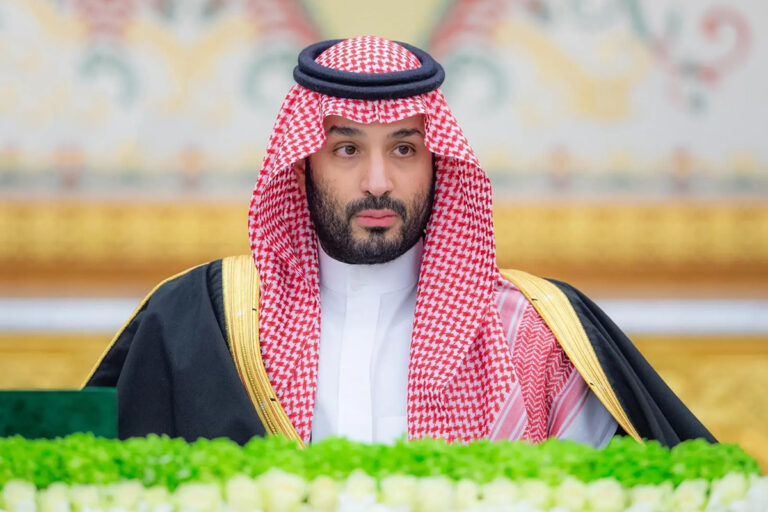In a major move that underscores Saudi Arabia’s ongoing reforms and commitment to improving quality of life, Saudi Crown Prince Mohammed bin Salman has granted an extension for the ongoing study aimed at regulating the landlord-tenant law relationship. The decision has been met with both relief and anticipation among real estate stakeholders, legal experts, and ordinary citizens who have been eagerly waiting for a clearer legal framework to govern rental agreements.
This article explores why this extension is significant, what it means for landlords and tenants, and how it fits into the broader context of Saudi Arabia’s Vision 2030.
Background: The Importance Of Regulating Landlord-Tenant Relations
The relationship between landlords and tenants is at the core of any housing market. In Saudi Arabia, this dynamic has traditionally been informal, often guided more by customs and unwritten agreements than by a clear set of legal protections.

With Saudi Arabia’s population growing and urbanization accelerating, tensions and disputes between landlords and tenants have become more frequent. Issues such as sudden rent hikes, arbitrary eviction notices, and lack of maintenance have led to frustration and financial strain for tenants. Meanwhile, landlords have expressed concerns about unpaid rent and damage to properties.
Recognizing these challenges, the Saudi government initiated a comprehensive study to modernize and regulate these relationships. This effort aligns closely with the ambitious goals of Vision 2030, which aims to improve the standard of living and attract both domestic and foreign investors to the housing sector.

Why Was The Extension For The Saudi Landlord-Tenant Law Study Granted?
The original timeline for the study was ambitious, given the complex nature of real estate regulations and the need to consider cultural, social, and economic factors. Stakeholders needed more time to provide feedback, assess international best practices, and adapt them to Saudi society.
By granting this extension, the Crown Prince has demonstrated a commitment to crafting a law that is not only comprehensive but also fair and balanced. The extension allows for:
- Thorough stakeholder engagement: Landlords, tenants, developers, and legal experts can offer their insights.
- Detailed data collection: Reliable data on rental disputes, market trends, and tenant needs are crucial for creating effective regulations.
- Alignment with Vision 2030: The law can be carefully crafted to support the kingdom’s broader development goals.
What Is Expected From The New Saudi Landlord-Tenant Law?

The upcoming law is expected to introduce several key measures aimed at balancing the rights and responsibilities of landlords and tenants. While the final draft is yet to be released, early indications suggest that it may include:
Clear Rental Contract Standards
At the heart of the reform is the introduction of standardized rental contracts. These contracts will specify the rights and duties of both parties, outline maintenance obligations, and define procedures for rent adjustments.
Transparent Rent Increase Regulations
Unplanned and sudden rent hikes have been a major concern for tenants. The new law is expected to set clear guidelines on when and how much rent can be increased, providing much-needed stability and predictability.
Stronger Tenant Protection Against Arbitrary Eviction
Currently, many tenants face sudden evictions with little or no notice. The law will likely enforce stricter rules on eviction, requiring landlords to provide legitimate reasons and adequate notice periods.
Dispute Resolution Mechanisms
A specialized rental dispute resolution body may be established to handle conflicts efficiently and fairly. This would help avoid lengthy court procedures and reduce the burden on the judicial system.
Clear Responsibilities For Maintenance
Many disputes arise from disagreements over property maintenance. The new law is expected to clarify what repairs and upkeep fall under landlord versus tenant responsibilities.
Reactions From Landlords And Tenants
Landlords: Cautious Optimism
Many landlords have expressed cautious optimism about the proposed regulations. While some fear that stricter rules might limit their flexibility, many welcome the clarity and structure that a standardized legal framework could provide.
A Riyadh-based property owner shared, “We need laws that protect us from tenants who do not pay or damage properties. At the same time, we must offer fair terms to encourage long-term leases and reduce tenant turnover.”
Tenants: A Sense Of Relief
Tenants, on the other hand, largely see this development as a relief. For many, the unpredictability of rental agreements has been a significant stressor.
A tenant in Jeddah explained, “Sometimes, we don’t know if our rent will double next year or if we’ll be asked to leave suddenly. Clear laws will give us peace of mind and help us plan for the future.”
Alignment With Vision 2030
Saudi Arabia’s Vision 2030 seeks to diversify the economy and enhance the living standards of its citizens and residents. Housing plays a pivotal role in this vision. By improving the rental market, the government aims to:
- Encourage more young people to move into independent housing.
- Boost confidence among foreign investors in the real estate sector.
- Reduce social tensions arising from housing insecurity.
- Create a more vibrant, urbanized society in line with modern standards.
The Saudi landlord-tenant law study is a critical component of this vision, promising to transform the rental sector from an informal, often opaque system into a transparent, reliable, and fair market.
Lessons From International Models
In drafting the new landlord-tenant law, Saudi Arabia is reportedly studying regulations from various successful international markets, such as those in Germany, Singapore, and the UAE. These countries have implemented balanced laws that protect tenant rights while ensuring landlords have mechanisms to protect their investments.
For example, in Germany, rental agreements are detailed and long-term rent controls are common, providing stability. In Singapore, the government promotes transparency and sets clear standards for maintenance responsibilities.
Saudi officials are keen on adapting these examples to the local context rather than copying them directly, taking into account the kingdom’s unique cultural and social landscape.
Expected Challenges In Implementing The New Law

While the new law promises many benefits, implementation will not be without challenges:
- Public awareness: Educating both landlords and tenants about their new rights and responsibilities will require significant efforts, including workshops, media campaigns, and easily accessible resources.
- Enforcement: Ensuring compliance will depend on robust monitoring and the establishment of effective enforcement bodies.
- Transitional arrangements: Many existing leases may not align with the new law, requiring transitional guidelines to avoid disputes.
Addressing these challenges will be crucial for the law’s success and for building trust among all stakeholders.
Broader Economic Impact
Beyond the immediate effect on landlords and tenants, the new Saudi landlord-tenant law is expected to have a wider economic impact:
- Attracting investment: A well-regulated rental market will make Saudi Arabia more attractive to both local and foreign investors, boosting the real estate sector and supporting economic diversification.
- Enhancing workforce mobility: With more predictable and fair rental agreements, professionals may find it easier to relocate within the kingdom, supporting labor market flexibility.
- Supporting tourism and expatriate growth: As Saudi Arabia continues to open up to tourists and international talent, a transparent and fair rental market will be essential in providing temporary housing solutions.
The Road Ahead
The extension of the Saudi landlord-tenant law study offers a valuable opportunity to ensure the final law is carefully designed and broadly supported. It signals a thoughtful approach rather than a rushed imposition, which is vital for a law that will affect millions of people.
Stakeholders are encouraged to continue their engagement during this extended period. Input from community organizations, legal associations, real estate developers, and tenants themselves will help shape a more inclusive and effective law.
Final Thoughts
The Saudi landlord-tenant law study extension is more than just a delay; it represents a commitment to fairness, transparency, and modernization. By taking the time to consult widely and craft a comprehensive legal framework, Saudi Arabia is laying the foundation for a rental market that benefits everyone.
For landlords, it promises clear guidelines and stronger legal backing. For tenants, it offers security and peace of mind. For the economy, it supports stability, investment, and growth.
As the kingdom moves forward on its Vision 2030 journey, this reform is yet another sign that Saudi Arabia is serious about building a more equitable and prosperous future.
Do follow UAE Stories on Instagram














